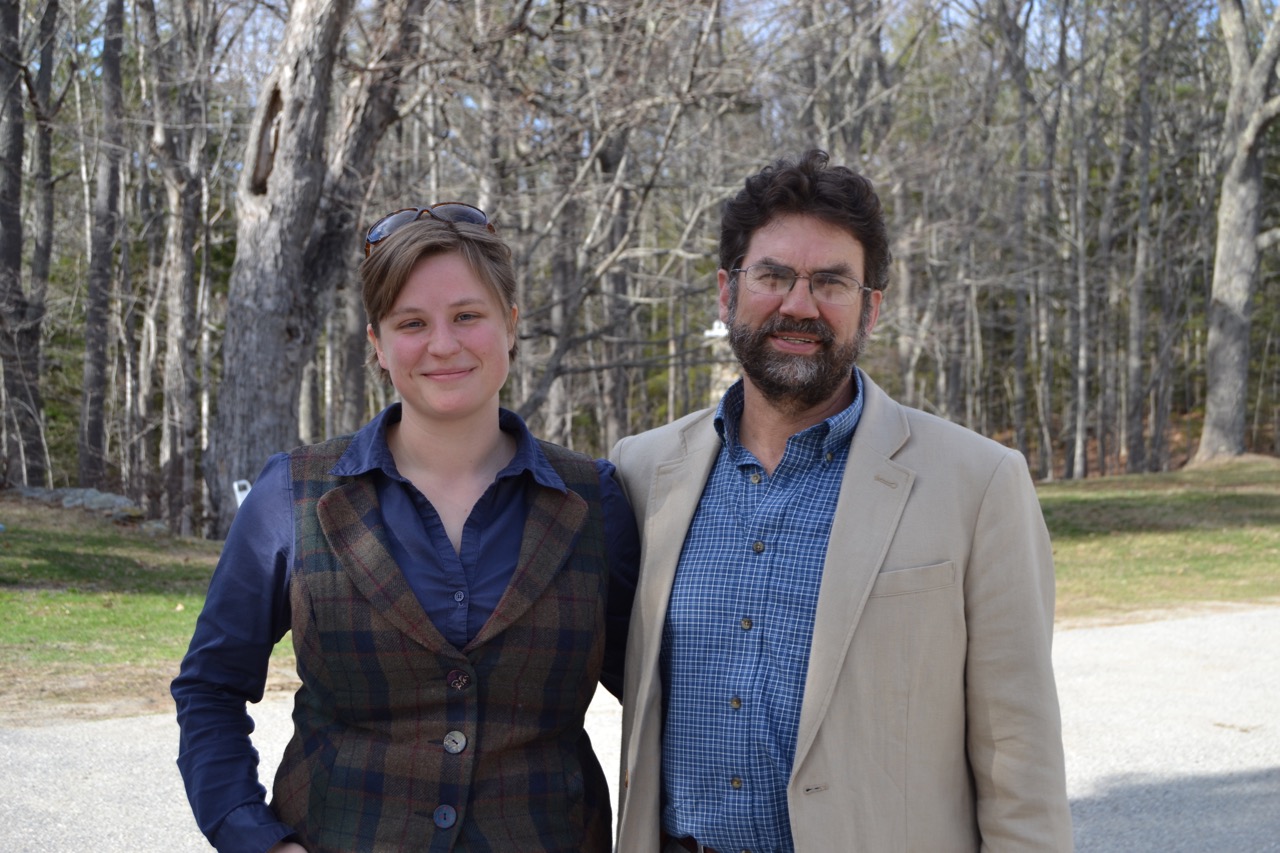
Skylar Bayer receives Ph.D. for scallop research at DMC
Skylar Bayer, a graduate student in the University of Maine’s School of Marine Sciences, successfully defended her Ph.D. dissertation at the Darling Marine Center in Walpole. Dr. Rick Wahle was her advisor.
With a background in deep sea ecology, Bayer came to the DMC in 2011 to study the fertilization and reproductive ecology of commercially important fisheries species. Focusing on the giant sea scallop, Placopecten magellanicus, Bayer studied how population size and density affect the reproductive success of this tasty, seasonally harvested bivalve.
One exciting aspect of the research which Bayer feels hold great promise for future fisheries work is the development of a genetic probe to detect scallop DNA in nature.
The scallop is a “broadcast-spawning” species, releasing gametes (eggs and sperm) into the water column. It is nearly impossible to visually distinguish scallop gametes from other bivalve gametes. Using a molecular technique called qPCR, the genetic probe has proved successful in laboratory studies.
Bayer will continue her research this summer, testing the probe in the field to identify and quantify scallop spawning events. “If it works well on field samples,” says Bayer, “it could be a quick and reliable way to estimate scallop reproduction and improve stock assessment models.”
Bayer has also made her mark in the field of science communication. Her long list of accomplishments include a TEDx talk, the co-production of live story telling events for The Story Collider, and a monthly radio show, Strictlyfishwrap Science Radio Hour, on WRFR-LP in Rockland, Maine. On a lighter note, her research received national attention in 2013 when the Colbert Report picked up the story of her lost scallop gonads.
